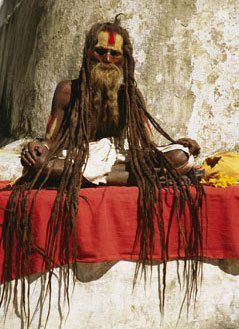

Further, vac, "speech", is called the "mother of the Vedas". The Atharvaveda is concerned with the material world or world of man and in this respect differs from the other three vedas.īrahman as the Source, Veda-limbs and Veda Supplements The Atharvaveda is a comparatively late extension of the "Three Vedas". Its first part consists chiefly of spells and incantations, concerned with protection against demons and disaster, spells for the healing of diseases, for long life and for various desires or aims in life. Unlike the other three Vedas, the Atharvanaveda has less connection with sacrifice. There are strong linguistic and cultural similarities between the Rigveda and the early Iranian Avesta, deriving from the Proto-Indo-Iranian times. The Rigveda Samhita was composed by poets from different priestly groups over a period of several centuries, commonly dated to the period of roughly the second half of the 2nd millennium BCE (the early Vedic period) in the Punjab (Sapta Sindhu) region of the Indian subcontinent. The texts considered "Vedic" in the sense of "corollaries of the Vedas" is less clearly defined, and may include numerous post-Vedic texts. The term "Vedic texts" is used with two distinct meanings: (a) Texts composed in Vedic Sanskrit during the Vedic period (b) Any text considered as "connected to the Vedas" or a "corollary of the Vedas". Further, the essence of the three Vedas is presented as the syllable Aum (Katha Up. Vedanta, "the end of the Vedas" sum up teachings in Upanishads and present "Veda" in philosophical terms. Ayurveda, "life-knowledge", is also included among the Vedas by some (Ayurvedic medicine is a system of Hindu traditional medicine). Some scholars add a fifth category: the Upasanas (worship). Ideas of karma (retributive action) and moksha (liberation) appear in the Upanishads.

The Brahmanas (commentaries on rituals, ceremonies and sacrifices),.The Aranyakas (text on rituals, ceremonies, sacrifices and symbolic-sacrifices),.The Samhitas (mantras and benedictions),.For example, Manu Samhita often speaks of the three Vedas -Įach Veda has been subclassified into four major text types:
Sama veda maharishi full#
The common divisions of the Veda into four, come from Fritz Max Müller and may seem clear-cut, but all ancient texts do not fit these schemes full well. There are the Rigveda, the Yajurveda, the Samaveda and maybe also the Atharvaveda, depending on who classifies them. In the Hindu Epic Mahabharata, God the Creator is credited with creating Vedas.

For orthodox Indian theologians they are considered revelations and some way or other the work of the Deity. Composed in Vedic Sanskrit, the texts constitute the oldest layer of Sanskrit literature and the oldest scriptures of Hinduism. The word Vedic derives from the Sanskrit véda, "knowledge, wisdom", from the root vid "to know") The Vedas comprise a large body of texts originating in ancient India.

The ancient texts classified and subdivided It is good to know what 'Vedic' often stands for, though, which is "of Vedas". The word 'Vedic', of knowledge, may be used to describe or launch a lot of things, and it may be aligned with Vedic culture also. The term Veda, "knowledge", can also be used to refer to fields of study that are unrelated to liturgy or ritual, as in agada-veda, "medical science", sasya-veda "science of agriculture". Transmission of texts in the Vedic period was at first oral, preserved with the help of artful mnemonic techniques. The Vedas are among the oldest sacred texts. It happened to the word 'Vedic' too.Ī dictionary's entry on Vedic: of or relating to the Vedas or the ancient form of Sanskrit in which they are written of or relating to the ancient Indo-European settlers in India, regarded as the originators of many of the traditions preserved in the Vedas. It was quite common that the terms had several meanings, and some branched out. Going by one or more traditional uses of 'Vedic'Ī traditional outlook defines it to how ancient folks in Vedic times came to use it. It has meanings that derive from ancient Sanskrit, "to know", so 'Vedic' means "of knowledge". Meanings of 'Vedic' Going by the word alone


 0 kommentar(er)
0 kommentar(er)
